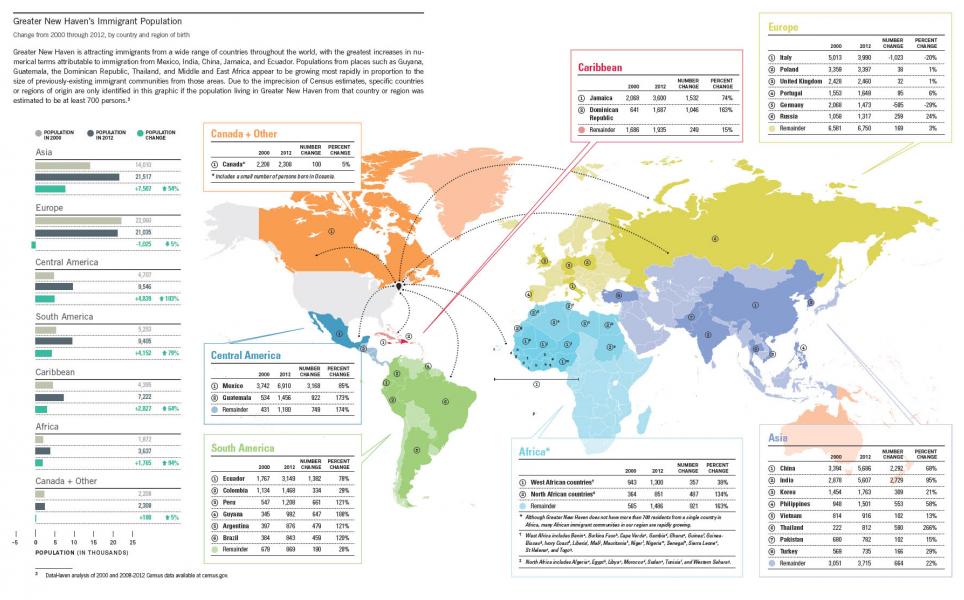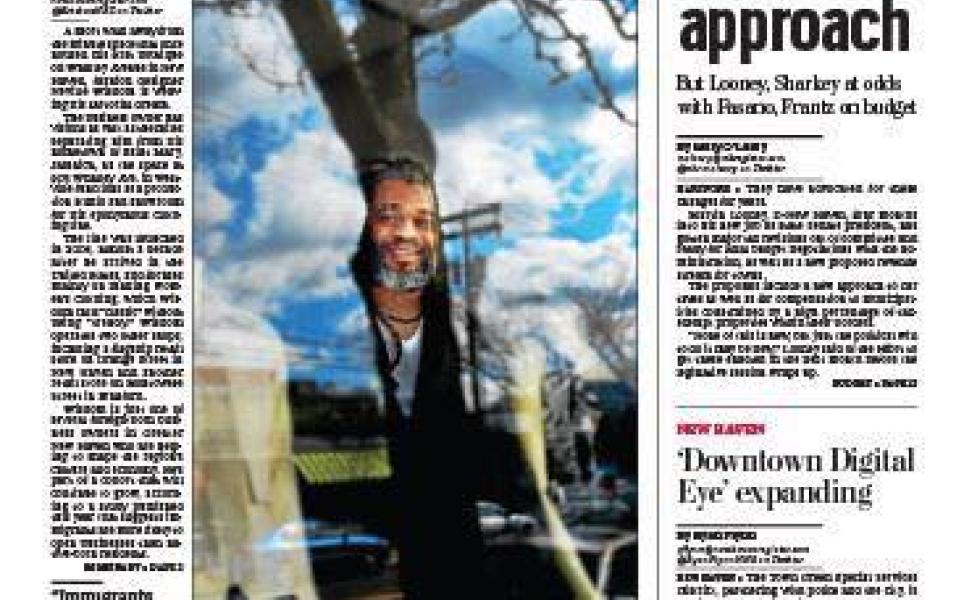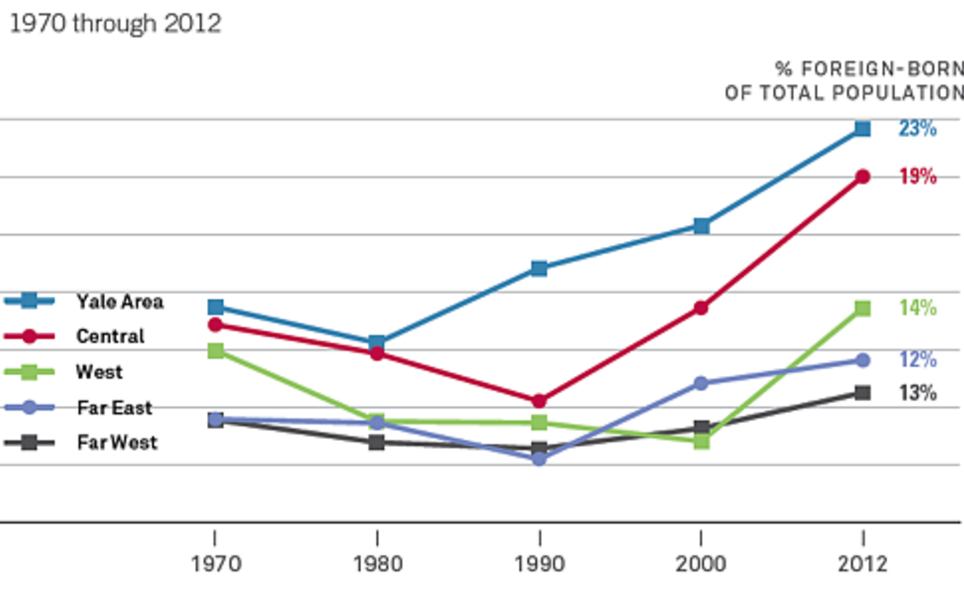[Excerpt] Immigrants contribute to the economic, cultural and social well-being of the Greater New Haven region. That according to a recently released report, “Understanding the Impact of Immigration in Greater New Haven,” issued by the Community Foundation for Greater New Haven, found that as of 2012, one in eight residents of the 20-town region is foreign-born, coming from all corners of the globe. About half are naturalized US citizens; the rest are legal permanent residents, legal temporary residents or undocumented immigrants.
William W. Ginsberg, president and CEO of the Community Foundation, said, “the origin and nationalities of the immigrants may have changed over the years, but the story is the same.”
Foreign-born residents have helped to revitalize previously-declining city neighborhoods by renting or investing in homes and creating small businesses. They contribute millions of dollars in property taxes to municipalities throughout the region, place great emphasis on their children’s education and contribute to the diversity and cultural richness of the community.
Ginsberg said immigrants – including the undocumented – are responsible for many of the things city residents are most proud of: its diversity, arts, culture and dining.
“It is not our understanding that immigrants don’t face obstacles and prejudice,” he said. “But I think this region has distinguished itself for being welcoming.”
The report, written by Mark Abraham and Mary Buchanan of DataHaven, a local nonprofit organization that compiles, shares and interprets public data to facilitate policy-making and community-building. They pulled together input from key stakeholders and the results of an online survey completed by nearly 600 foundation constituents, as well as information from numerous sources, including government agencies, to capture the many dimensions of immigration’s impact.
In surveying foundation constituents, the idea was not to scientifically measure public opinion on immigration, but rather to get a general picture of the range of attitudes, Ginsberg said.
Among survey respondents, 86 percent said that Connecticut was very or somewhat welcoming to immigrants. Many noted that local policies, assisting agencies and the attitudes of residents contribute to a more hospitable atmosphere in New Haven proper than in surrounding municipalities.









